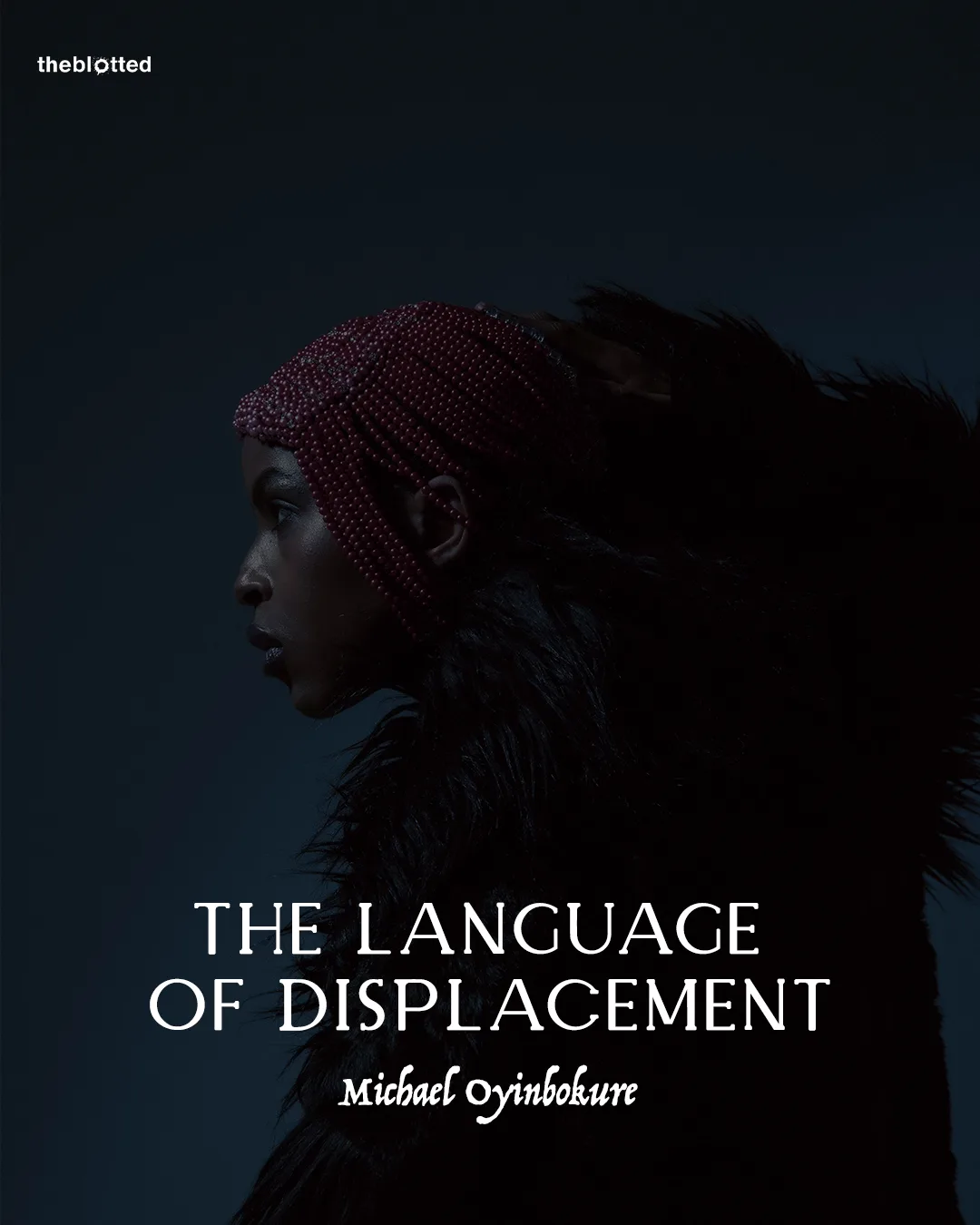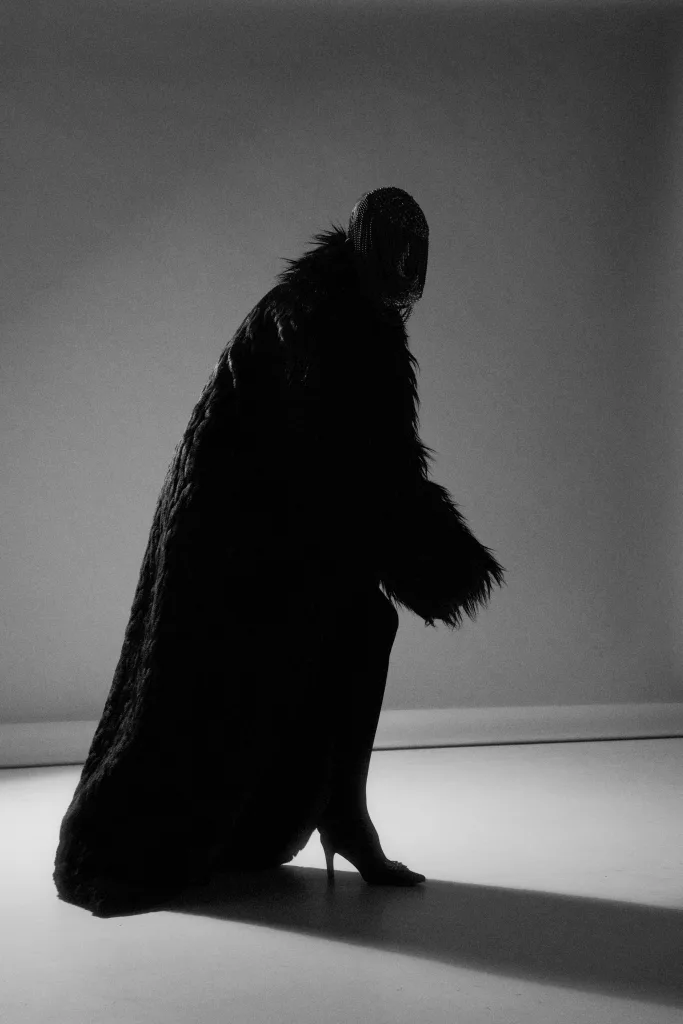
Michael Oyinbokure’s Masqueradism exists in the liminal space between memory and reinvention, where the African immigrant body becomes both artifact and architect of its own narrative. The series, a haunting interplay of shadow, fabric, and handcrafted beaded masks, resists easy categorization. It is pure photography and performance art. Masqueradism is fluid, a visual syntax for the unspeakable. Oyinbokure’s work evokes the Yoruba concept of aṣẹ, the life force that animates art: these images hum with it, their quiet intensity belying the weight of their subject.
The masks, central to the project, are not static symbols but active participants in a dialogue about visibility. Made from beads, they catch light like prisms, refracting identity into something mutable—a necessary survival tactic for those navigating foreign landscapes. Here, Oyinbokure aligns with artists like Njideka Akunyili Crosby, whose layered collages dissect diasporic duality, or the Ghanaian filmmaker Akosua Adoma Owusu, whose work fractures time to expose the seams between tradition and modernity. Yet where Crosby’s figures often occupy domestic interiors, Oyinbokure’s subjects float in undefined space
You can tell from the backgrounds– plain, monochrome. There is rawness here. You can see as the backdrop folds on itself behind the subject. There’s a bit of apprehension with the way the model poses, looking at and through the camera. As if to say: witness me. There is something primal about these images— they come in four forms: two with the model wearing a fur coat, one where it covers her face, like the conventional masquerade, the other parts the beads to show her face. Despite this, not much is revealed… the mystery persists. Another one of the forms has the model wearing a metal blouse, with a snakeskin skirt. The fourth form is grungy, delivered in black and white– the model wears a latex outfit and is adorned with a metallic veil on her head.

Masqueradism – Michael Oyinbokure
All of these representations present various interpretations Masqueradism and the African in diaspora. The African traveller is an enigma that carries the weight of her culture with her everywhere she goes. The African traveller can exist within two worlds of traditionalism and westernisation. The African traveller can code-switch, can become someone new at a moment’s notice. It is also very possible for the African traveller to be completely immersed and be changed by this new space. This fear is usually reserved for second generation Africans, but it is real for anyone who chooses to make the journey. There is a risk of forgetting oneself, or at the very least– leaving parts of one behind.
The project’s title, Masqueradism, plays on the double entendre of performance—both as artifice and as sacred act. Michael Oyinbokure, who speaks of his work as “remembrance in motion,” seems to argue that for the displaced, survival is a kind of masquerade. One must code-switch, adapt, cloak oneself in the unfamiliar while guarding the familiar close to the skin. The beads on her masks, each one a tiny labor of preservation, mirror this tension.
Movement is the silent protagonist in Masqueradism. Oyinbokure’s blurred figures seem caught mid-migration, their gestures echoing the eurythmy of ritual dances—a language without words. This kinetic quality recalls the Congolese choreographer Faustin Linyekula’s explorations of collective memory through the body, or the Nigerian performance artist Jelili Atiku’s politically charged street spectacles. But Oyinbokure’s approach is more intimate, his lens capturing not the grand narrative of exile but its private tremors: the way she poses, her existence within the flux of two worlds. Very little is actually enquired about her journey, but the project interprets migration in broad strokes.
Masqueradism’s power lies in its refusal to simplify. Michael Oyinbokure, who in collaboration with a painter was a finalist for the Circa Art Prize, understands that migration is not a linear journey but a continuous negotiation between loss and invention. His work murmurs in a language of gestures and textures, one that resonates with anyone who has ever had to translate themselves into a foreign tongue. In an era of global fracture, his art offers neither solace nor accusation—just the quiet, unflinching act of witnessing.


NO COMMENTS